(A Primer for Homeowners)
By: Helsing Admin
The following article is a user guide for homeowner use in understanding insurance issues involved in living in a common interest development.
GENERAL INSURANCE OVERVIEW
The Association insures all buildings and common areas under a single package HOA insurance policy. The insurance program of the Association provides:
– Financial protection to the owners against the possible loss of property and common facilities because of fire and other perils.
– Financial protection to the owners against possible loss due to liability for accidents occurring in the common areas or because of actions or in-actions of the Board.
– Protection of values of homes within the development by assuring funds are available to rebuild, repair or reconstruct following an insured loss.
– An additional HOA insurance policy carried by the Association should consist of a Fidelity Bond and Directors & Officers Liability. The vast majority of Associations do not carry insurance coverage for the damage of earthquake. Flood insurance is generally procured if the Association is in a known flood zone and if required as a condition of lending by the mortgage industry.
All owners are advised to purchase their own insurance policy to cover their own personal property and liability within their units and to seek the advice of a knowledgeable insurance expert as to coverage that may be available to offer additional protection, as needed, for accidents in the common area. Please review section on “Individual Owner’s Responsibility.”
INSURANCE CLAIMS
All claims for damages from an insurable loss under the Association’s HOA insurance policy must be reported to Management or the Board of Directors. Complete information regarding the loss must be provided to the Association Manager. The Association’s carrier will only process claims submitted through the Management Office or from the Board of Directors.
PROOF OF INSURANCE
Lenders require proof of insurance for the common areas as evidenced by a signed copy of a Certificate of Insurance. If your lender requests a Certificate, please forward the written request to the insurance broker’s office and a Certificate will be issued immediately to your lender. You can obtain the insurance broker’s name from the insurance certificate that is provided to you annually with your association’s budget. If you have lost that document, it has other important disclosures and you should contact management for a replacement.
INDIVIDUAL OWNER’S RESPONSIBILITY
As an individual owner, you need insurance protection that will be compatible with the Association’s policy and eliminate any gaps in coverage. Generally, you will need insurance protection for at least three (3) basic things:
1- to protect you in the event of a loss or damage to your personal property from fire, theft or other specified causes.
2- to protect your assets in the event you are legally responsible for injury to others, either in your home or elsewhere as a result of your personal activities.
3- to meet your shared insurance responsibility with the Association. The Association carries a deductible on the package policy for property damage, often times $2,500, $5,000 or $10,000. The individual owner could be held responsible for the deductible for any loss when the cause does not originate in the common area. If this is the case, it is prudent to endorse your personal policy with property coverage equal to or slightly greater than the deductible on the package policy. This is particularly important if you are living in a condominium or other attached housing where the association maintains insurance on the structure.
Other types of insurance that you may wish to consider as an individual owner are:
Personal Liability Coverage, which protects you in the event others make a claim or bring suit against you for bodily injury or property damage.
Loss Assessment Coverage is protection for the individual owner if it is necessary for the Association to levy an assessment in order to cover a loss or to provide additional funds if major damage occurs on the common area that is not fully covered by insurance.
Absentee Ownership is coverage for owners who rent their units and may wish to insure against loss of rents or personal property they may have in the unit.
Additional Living Expenses would cover living expenses if you cannot live in your own unit because it was damaged by an insured peril.
Finally, it is important that you pay attention to the annual disclosure on insurance, and particularly the portion that warns you that you should check with your HOA insurance policy professional to ensure that there are no gaps in coverage between the association’s coverage and your personal coverage.



